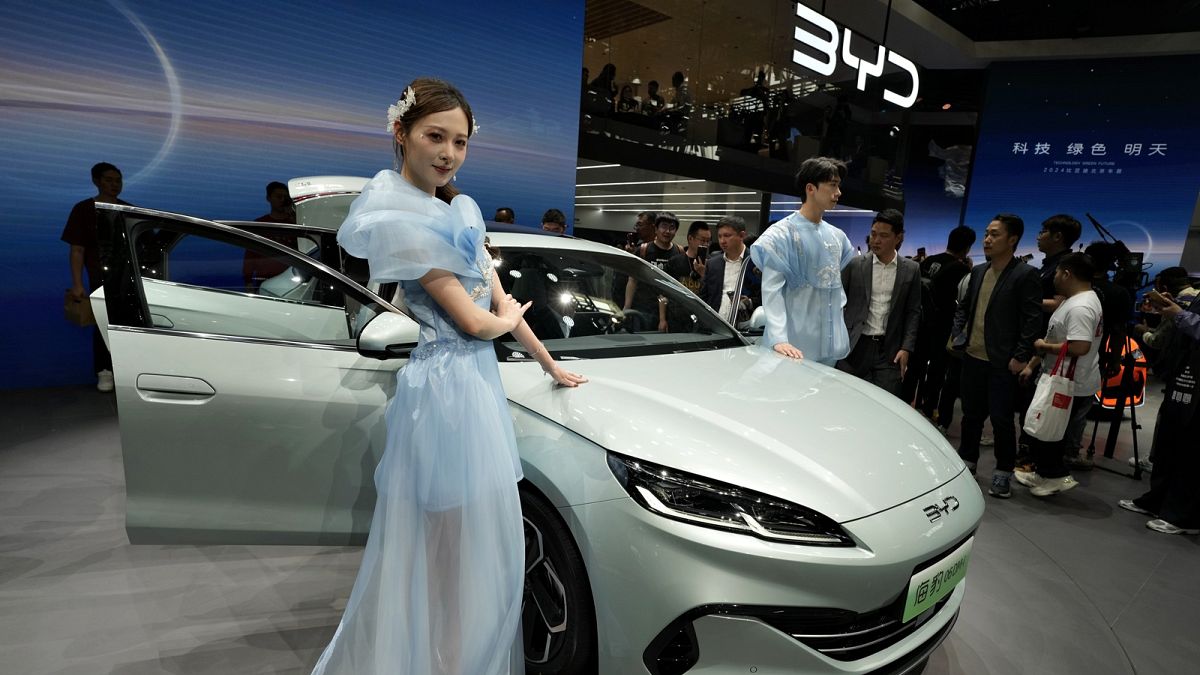The European Commission’s inquiry into Chinese electric vehicles has stirred up geopolitical tensions, putting the spotlight on state subsidies provided to Chinese companies in the Battery Electric Vehicle (BEV) sector. As the EU strives towards climate neutrality, the investigation aims to address the price advantage enjoyed by Chinese BEVs compared to their European counterparts, potentially leading to additional tariffs.
Under the Green Deal, the EU is committed to reducing greenhouse gas emissions by at least 55% by 2030, with electric vehicles playing a crucial role in achieving this goal. Last year saw a significant increase in BEV sales across the bloc, surpassing diesel vehicles in market share. Simultaneously, a slowdown in the Chinese economy led to a surge in exports of Chinese-made electric vehicles to the EU, fueled by lower prices and a 10% tariff on foreign-made cars.
The European Commission’s probe into Chinese state subsidies for the BEV sector aims to assess the impact on the EU industry and potentially impose tariffs to level the playing field. With key players in the Chinese market like BYD, SAIC and Geely withholding information, the investigation is set to determine if the subsidies are causing harm to EU companies through reduced sales and profit margins. Tariffs in the 15% to 30% range are expected, with potential implications for the competitive landscape.
As the EU contemplates imposing tariffs on China-made electric vehicles, concerns about potential retaliation from Beijing loom large. China has criticized the inquiry as protectionist and threatened to safeguard its interests, raising the specter of tit-for-tat measures that could impact sectors like vehicles and agricultural products. The EU, guided by World Trade Organization rules, views its actions as a means to restore fair competition and address concerns about unfair trade practices.
The decision on imposing permanent tariffs on China-made electric vehicles will rest with a vote among EU member states in November. While some countries like France and Italy support the proposal for strategic autonomy and industrial policy, others remain cautious about additional duties. Germany, a key player in the automotive industry, has expressed skepticism, citing potential risks of a trade conflict. Derailing the implementation of tariffs would require a qualified majority vote against the proposal by member states.
Against the backdrop of strained EU-China relations due to various geopolitical issues, the anti-subsidy inquiry into Chinese electric vehicles has added another layer of complexity. Trade disputes, combined with concerns about subsidies, intellectual property theft, and forced labor, have fueled tensions between the two economic powers. The investigation is seen as a part of a larger effort by the EU to ensure fair competition and combat unfair practices in the global market, reflecting the growing intertwining of trade and politics on the international stage.











